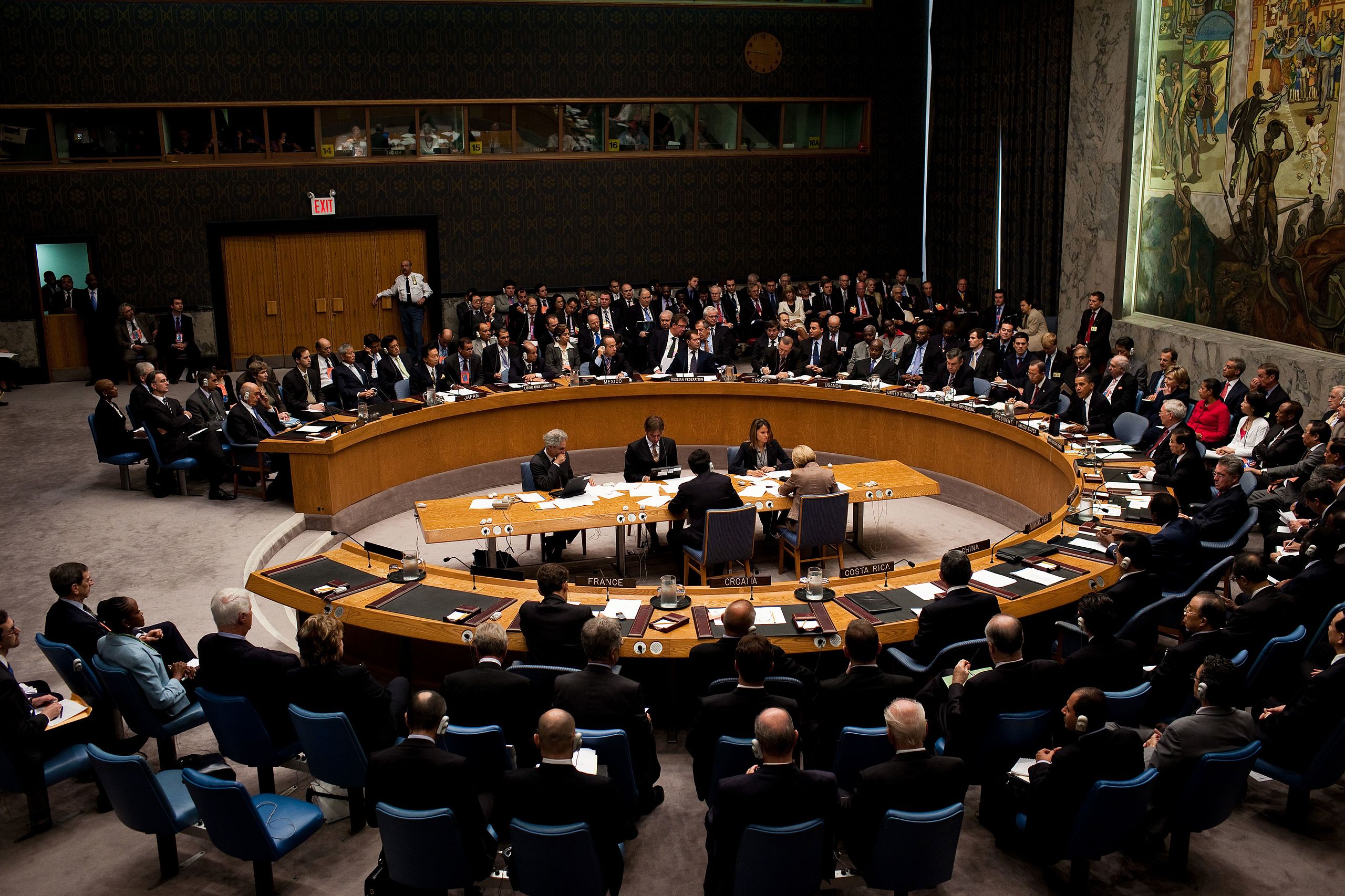The UN Security Council is Failing – Why Reform is Needed Now
 As Syria enters its tenth year of conflict, warnings of the damaging effects of climate change grow ever more dire, and a global pandemic threatens to tank the global economy and decimate populations, it is clear that the challenges facing global security are more complex than ever and require concerted, multilateral action. The international authority responsible for ensuring global peace and security, the United Nations (UN) Security Council, is faltering in its duties and is plagued by competing national interests and dubious legitimacy. In order to ensure an effective and legitimate international architecture for global security moving forward, the global community must take action to reform the UN Security Council.
As Syria enters its tenth year of conflict, warnings of the damaging effects of climate change grow ever more dire, and a global pandemic threatens to tank the global economy and decimate populations, it is clear that the challenges facing global security are more complex than ever and require concerted, multilateral action. The international authority responsible for ensuring global peace and security, the United Nations (UN) Security Council, is faltering in its duties and is plagued by competing national interests and dubious legitimacy. In order to ensure an effective and legitimate international architecture for global security moving forward, the global community must take action to reform the UN Security Council.
The UN Security Council has failed to act in several large-scale humanitarian crises. The sitting global powers – the P5 or ‘permanent five’ (the United States, the United Kingdom, France, Russia and China) – have used the power of the veto, or the threat of the veto, to kill resolutions that do not align with their national interests, allowing mass atrocities to continue unchecked. As conflicts in Syria and Yemen rage on, continued inaction from the Security Council has paralyzed the international community’s ability and willingness to intervene to stop ongoing crimes against humanity.
Reform efforts have been presented, such as the proposal from France and Mexico, along with international civil society partners, whereby the P5 would voluntarily relinquish their right to veto in situations where crimes against humanity are present. The UN has recognized that war crimes are indeed being perpetrated, such as civilians and hospitals targeted in Idlib, Syria and abuses from all parties to the war in Yemen. While this initiative has received support from 101 countries, pressure on and/or leadership within the P5 must be heightened to move any reform further along.
Crises facing the world are becoming ever more complex, and finding solutions requires buy-in and cooperation from the wider international community. The UN Security Council needs to adapt and expand to reflect the evolving nature of global power. As wars are waged further from the traditional battlefield, action needs to be taken far beyond slapping on sanctions or other measures that yield only mild success. By maintaining its status as an outdated, exclusive club from a bygone era (the composition of the Security Council has not changed since 1965 and has not reflected growth in UN membership from 51 to 192 since its creation), timely solutions to the world’s most pressing issues become more difficult to discover and enact.
Aside from ongoing conflicts, emerging threats to international peace and security, such as climate change, are exacerbated by the very global powers tasked with solving them. The immense conflict of interest of the decision makers with the power to veto resolutions aimed at mitigating this growing crisis calls into question the body’s legitimacy and willingness to act in the interest of the wider international community.
At the same time that the Security Council is facing challenges to its legitimacy, the sitting global powers are in a state of retreat from international cooperation. The wave of populist ideology sweeping the globe has major powers turning inward. As the Trump administration withdraws from major treaties and agreements and moves to defund UN agencies, the longevity of the UN system is under fire. This dearth in global leadership resurfaces calls for expansion of the Security Council to more closely reflect shifting and emerging global powers.
The call for UN Security Council reform is not a novel one, but efforts have fallen to the wayside. Recent events have brought back to light the interconnected nature of the world today, and an effective body to safeguard international security is ever more important. This is a call to action for the wider international community to push for a more representative and engaged council of countries that are willing and able to safeguard international security. In tandem, the existing powers must accept responsibility for the Security Council and take leadership to ensure its long-term effectiveness and legitimacy. The United States, in particular, while unlikely to take steps in this direction under the current administration, needs to take responsibility as a global leader to rally the necessary support to push through reforms. The future of the international institutions that bind us together is at stake.
Related posts:
Category: AFRICA, AMERICAS, EUROPE & EURASIA, FOREIGN POLICY & SECURITY, INTERNATIONAL LAW & HUMAN RIGHTS, POLITICS, SOUTH ASIA & ASIA PACIFIC, Uncategorized

